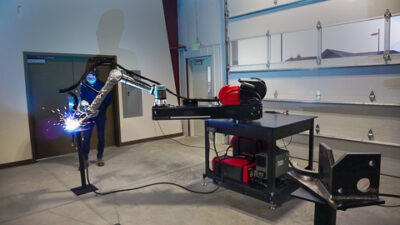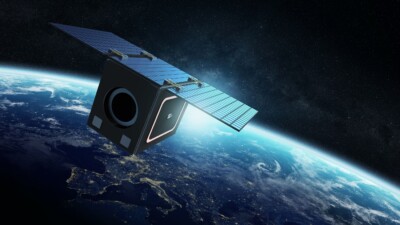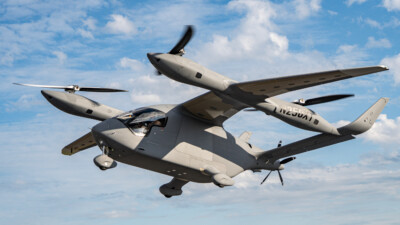Aerospace sustainability practices are governed by regulations and standards developed by several different organizations. Here is a non-exhaustive overview of key regulations and standards, categorized by organization.

ASTM
ASTM International (formerly the American Society for Testing and Materials) is a global organization that develops standards for materials, products, systems and services across multiple industries. While the organization has numerous standards related to aviation and aerospace, here are some key sustainability-related standards:
- D7566 (Standard Specification for Aviation Turbine Fuel Containing Synthesized Hydrocarbons
- E3027 (Standard Guide for Making Sustainability-Related Chemical Selection Decisions in the Life-Cycle of Products)
- E3096 (Standard Guide for Definition, Selection, and Organization of Key Performance Indicators for Environmental Aspects of Manufacturing Processes)
- E2986 (Standard Guide for Evaluation of Environmental Aspects of Sustainability of Manufacturing Processes)
- E2979 (Standard Classification for Discarded Materials from Manufacturing Facilities and Associated Support Facilities)
- E3012 (Standard Guide for Characterizing Environmental Aspects of Manufacturing Processes)
- E3200 (Standard Guide for Investment Analysis in Environmentally Sustainable Manufacturing)
- E3461 (Standard Guide for Principles of Circular Product Design)
- F2931 (Standard Guide for Analytical Testing of Substances of Very High Concern in Materials and Products)
ASTM also has numerous standards not directly related to sustainability, but related to advanced aerospace materials such as polymer composites, aluminum alloys and titanium alloys. For example, D3039/D3039M-17 (Tensile Properties of Polymer Matrix Composite Materials) is one of several standards related to composite materials.
EASA
The European Union Aviation Safety Agency (EASA) works with the European Commission to implement ICAO standards into EU legislation. The EASA has published numerous regulations related to environmental and sustainability issues, such as Article 9 and Article 19 of the Basic Regulation, Annex II (Part-21) of the Implementing Regulation, and the Certification Specifications of CS-34 (emissions), CS-36 (noise) and CS-CO2 (CO2 Emissions). EASA launched its Sustainable Aviation Programme in 2020 in coordination with environmental protection regulations (EU2018/1139, Art. 87) and the European Green Deal. A subsequent EU regulation commonly known as the ReFuelEU Aviation Regulation was published as part of a legislative package aimed at reducing net greenhouse gas emissions by at least 55% by 2030, compared to 1990 levels.
GRI
The Global Reporting Initiative (GRI) develops standards for organizations to report on their environmental and social impacts. The GRI Standards are subdivided into three categories:
- Universal Standards — Reporting on human rights and environmental due diligence, in line with intergovernmental expectations, applicable to all organizations
- Sector Standards — Reporting on sector-specific impacts, with aerospace and defense one of 40 sectors
- Topic Standards — Disclosures relevant to a particular topic
IATA
The International Air Transport Association (IATA) and its members committed to a target of achieving net-zero CO2 emissions by 2050. As part of that initiative, IATA released the Sustainable Aviation Fuel (SAF) Matchmaker platform, which aids SAF procurement between airlines and SAF producers. The IATA’s Airline Sustainability Reporting Handbook (ASRH) provides guidance on GRI-based reporting, subdivided into eight topics:
- Conduct and compliance
- Customer experience
- Energy and emissions
- Labor conditions
- Noise
- People and development
- Supply chain sustainability
- Waste and effluents
ICAO
The International Civil Aviation Organization (ICAO) develops international standards for aircraft noise, emissions, and fuel venting. For example, the ICAO adopted a CO2 emissions certification standard: Annex 16, Volume III – Aeroplane CO2 Standard (2017) that applies to subsonic jet and turboprop airplanes that are new type designs from 2020. It also applies to in-production airplanes from 2023 that are modified and meet a specific change criteria. This is followed by a production cut-off in 2028, which means airplanes that do not meet the standard can no longer be produced beyond 2028 unless the designs are modified to comply with the standard.
ISO
The International Organization for Standardization (ISO) is a global organization that publishes a wide variety of standards on products and processes. It publishes standards on quality, environmental management and industry-related topics, including the following related to aerospace and other industries:
- ISO 9001 (Quality management systems)
- ISO 14001 (Environmental management systems)
- ISO 15388 (Space systems — Contamination and cleanliness control)
- ISO 23312 (Space systems — Detailed space debris mitigation requirements for spacecraft)
- ISO 24113 (Space systems — Space debris mitigation requirements)
NATA
The National Air Transportation Association (NATA) developed its Sustainability Standard for Aviation Businesses, focusing on reducing greenhouse gas emissions and promoting environmentally friendly practices. The NATA initiative was created to provide fixed base operators (FBOs) and other aviation businesses a self-certification process for pursuing flexible, cost-effective options to lower their carbon footprint by reducing greenhouse gas (GHG) emissions, increasing use of more environmentally friendly energy sources, reducing waste and encouraging sustainability operation-wide.
SASB and IFRS
The Sustainability Accounting Standards Board (SASB) developed standards for disclosing environmental, social and governance information for 77 industries, including aerospace and defense, air freight and logistics and airlines. The standards offer metrics for comparing performance across organizations, identifying sustainability disclosure topics relevant to each industry. The SASB Standards are maintained by the International Sustainability Standards Board (ISSB), following the SASB’s merger with the International Integrated Reporting Council (IIRC) and subsequent consolidation into the IFRS Foundation.
SAE
The Society of Automotive Engineers (SAE) is a global association of engineers and related technical experts in the aerospace, automotive and commercial-vehicle industries. It publishes numerous standards, including Aerospace Material Specifications (AMS), which are specifically related to aerospace and defense. A small sampling of aerospace-related standards include:
- AS9100D (Quality Management Systems – Requirements for Aviation, Space, and Defense Organizations) includes ISO 9001 quality management system requirements and specifies additional aviation, space and defense industry requirements, definitions and notes.
- AMS1428M (Fluid, Aircraft Deicing/Anti-Icing, Non-Newtonian (Pseudoplastic), SAE Types II, III, and IV)
- AMS3143D (Powder Coating Material)
- AIR4766/2A (Airborne Chemicals in Aircraft Cabins)
In 2022, SAE and the International Aviation Waste Management Association (IAWMA) formed a joint committee, G-36 Sustainable Waste Management, to develop standards and best practices for products, processes and services in global commercial and business aviation, airports and flight kitchens. SAE also publishes a wide variety of standards related to aerospace and aviation, but not directly related to sustainability, such as DO-178, DO-278, and DO-330, which focus on the development and certification of software for safety-critical aviation systems.
Other initiatives
In addition to numerous regulations and standards, other organizations have launched initiatives and provided guidelines related to sustainability.
- The Federal Aviation Administration (FAA), along with aircraft manufacturers and airlines, developed the Continuous Lower Energy, Emissions, and Noise (CLEEN) Program, which provides funding to develop and accelerate the introduction of technologies that will reduce noise, emissions, and fuel burn. FAA has also launched initiatives related to sustainable airports.
- The United Nations Committee on the Peaceful Uses of Outer Space (UNCOPUOS) developed 21 guidelines for the long-term sustainability of outer space activities (LTS), which were subsequently endorsed by General Assembly resolution 74/82. The Committee established a new LTS 2.0 working group and five-year workplan in 2022 for continued institutionalized dialogue on issues related to the implementation and review of LTS guidelines.
- Professional associations, such as the Aerospace Industries Association (AIA), American Institute of Aeronautics and Astronautics (AIAA), American Society of Civil Engineers (ASCE), American Society of Civil Engineers (ASME), Institute of Electrical and Electronics Engineers (IEEE), and Society of Military Engineers (SAME), have launched initiatives and published guidance documents related to sustainability.
The wide range of organizations involved in sustainability creates numerous standards, regulations and guidelines, many of which undergo ongoing reviews and changes. It is the responsibility of aerospace industry professionals to stay updated with ongoing developments and how those developments might affect current and future practices.



